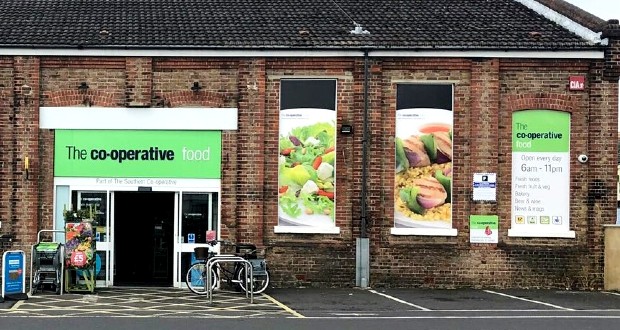The Science Based Targets initiative (SBTi) is a collaboration between CDP (formerly the Carbon Disclosure Project), the United Nations Global Compact, World Resources Institute, and WWF (World Wide Fund for Nature).
Southern Co-op has committed to:
- Reduce emissions that fall under its operational control such as electricity, gas, fuel, and emissions associated with refrigeration by 50% by 2030.
- Reduce emissions associated with its wider value chain and activity pre- and post-sale for example products, suppliers, and customers by 17% by 2030.
Chief executive Mark Smith, who chairs Southern Co-op’s Climate Action Group, said: “These targets provide a vital step for Southern Co-op on a longer-term pathway to net-zero carbon. Our targets are supported by a multi-million-pound programme with an initial £5.8m investment with a focus on further energy reduction and improving refrigeration.
“Our aim is to get our emissions down as low as we possibly can. Alongside exploring longer-term reduction opportunities, we will also look at other ways to compensate for our emissions and impacts.”
Initiatives to reduce Southern Co-op’s carbon footprint have already included sourcing the majority of its electricity from renewable sources, installing LED lighting across its estate, movement sensors to control lighting in stockrooms and employee areas, airflow technology or doors for refrigeration, and solar photovoltaic panels at eight locations.
Gemma Lacey, Southern Co-op’s director of sustainability and communications, said: “As a co-operative we know there is power in collaboration so we will be looking to our colleagues, members, community partners, and others to play their part to our mutual benefit.
“The next 10 years are critical so we will be regularly reviewing our progress to make sure we keep on track to achieve our targets and longer-term aspiration of net-zero carbon and if we can we will endeavour to reach these goals sooner.”
 Talking Retail Grocery and product news for independent retailers
Talking Retail Grocery and product news for independent retailers






